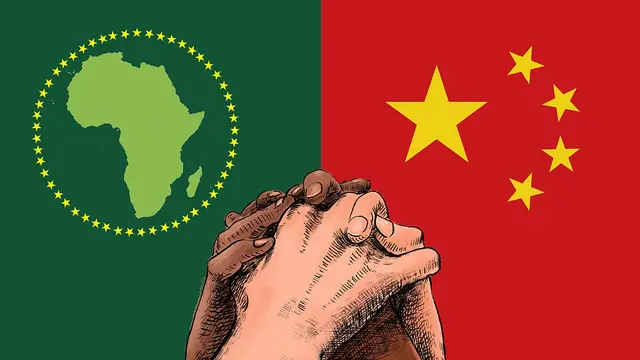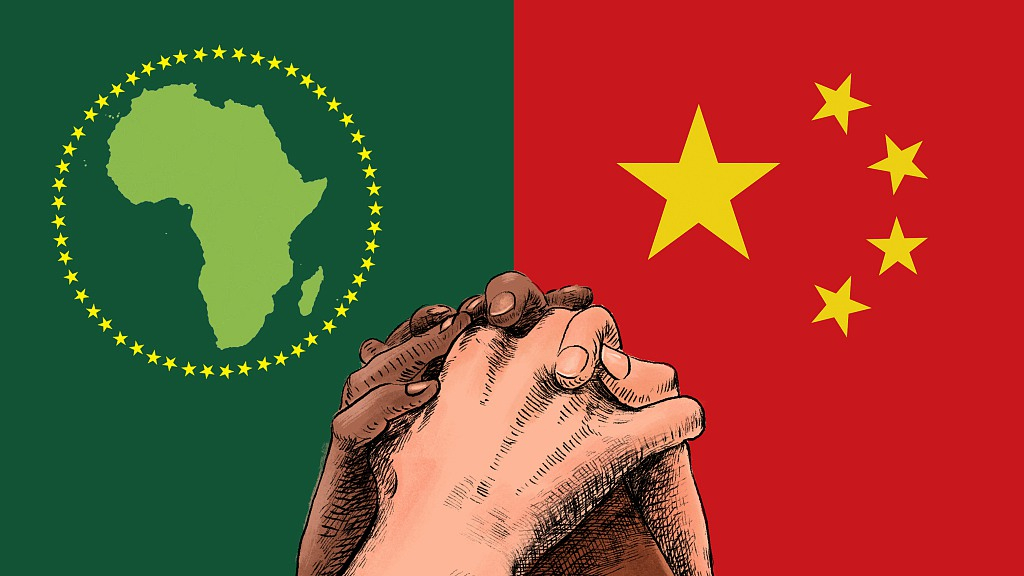
COVID-19 has been declared a pandemic by the World Health Organization. It is currently spreading rapidly in Europe, Asia and America. In the meanwhile, Africahas also been witnessing cases emerging across the continent since February.
Although the official tally of infections in African countries remains low compared to in other parts of the world, some believe thatthe epidemic still poses a challenge for the continent given its relatively weak health system.
Since the outbreak began in China, leaders of dozens of African countries, including South Africa, Algeria, Senegal, Kenya and Zambia, have expressed their solicitude and support for China.
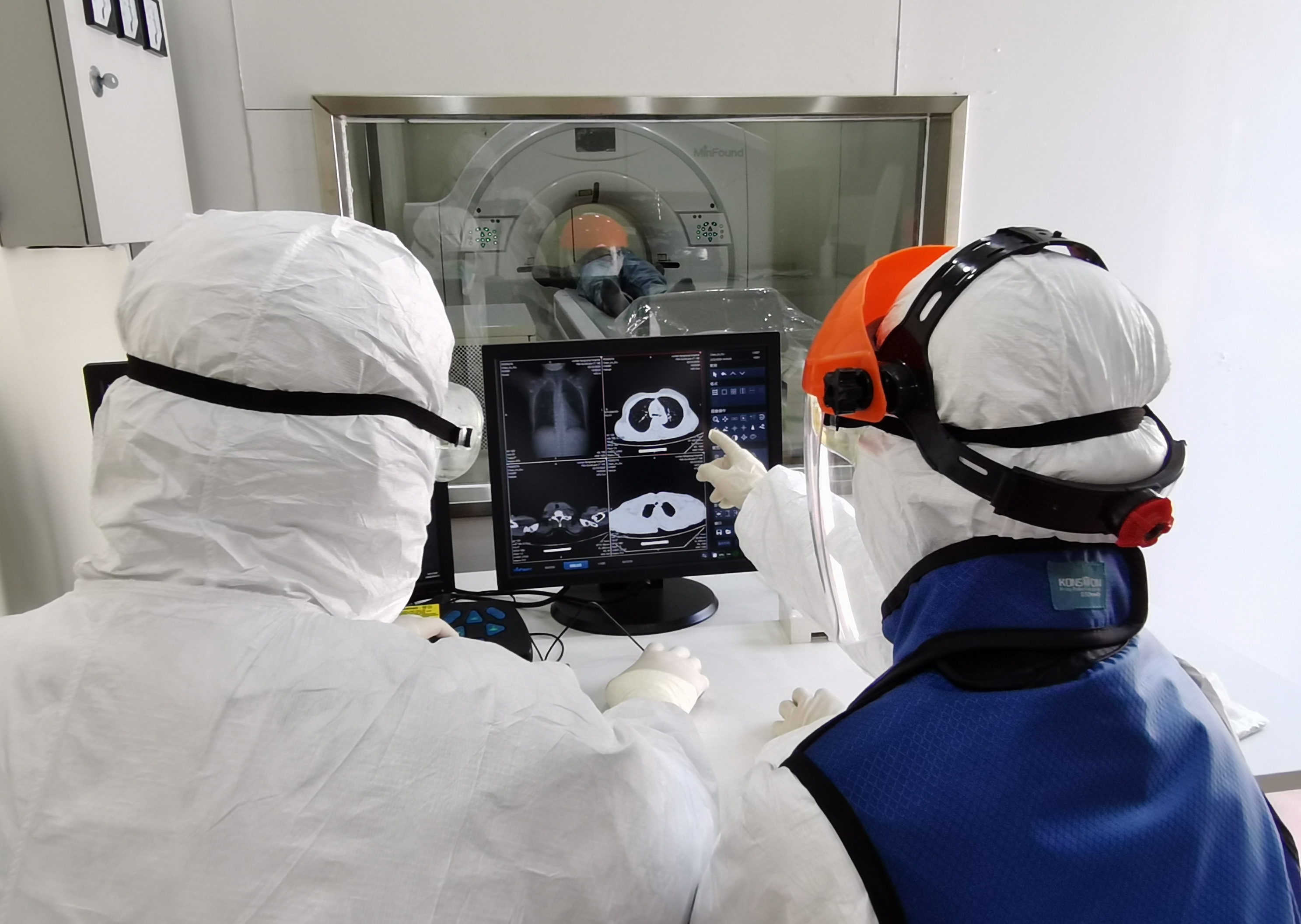
Medical workers are checking a patient's CT image with a movable CT machine at a temporary hospital in Wuhan, central China's Hubei Province, February 23, 2020. /Xinhua
At the same time, China has been working closely with Africa, including a special group in Africa CDC dedicated to tackling COVID-19, sharing with the latter information of the disease as well as experiences of containing the virus.
The strength of China-Africa relationship has its historical roots. Despite the geographical distance, China and Africa enjoy a time-tested friendship. As President Xi Jinping said, "China and Africa are friends tested by adversity. Such friends must never be forgotten."
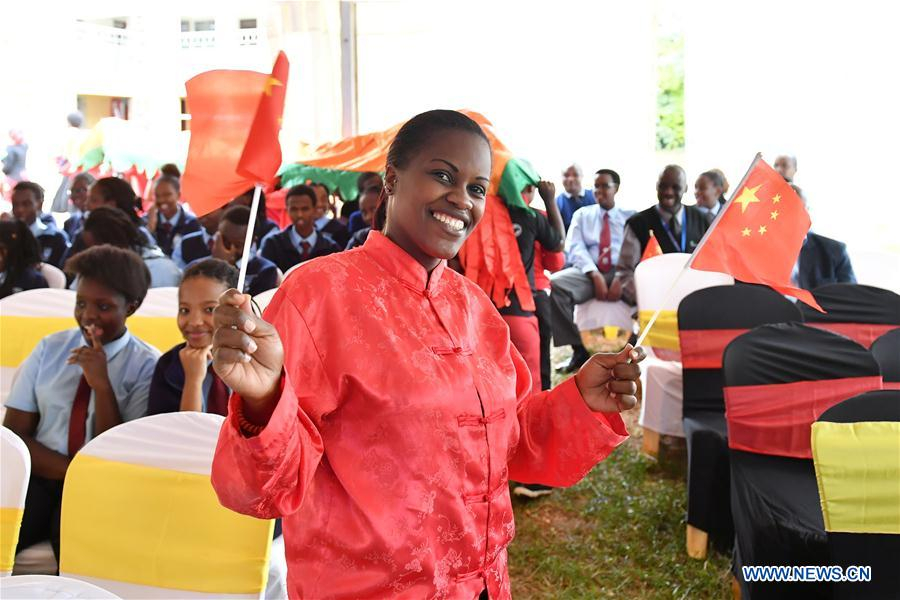
A teacher in Chinese costume attends the unveiling ceremony of the Confucius Classroom at Rusinga School in Nairobi, Kenya, May 10, 2017. /Xinhua
Since the 1950s and the 1960s, Chinese and African peoples have supported each other, shared common aspiration and forged a profound brotherhood in their respective fights for national independence and liberation against colonialism and imperialism.
The first generation of leaders of the People's Republic of China including Chairman Mao Zedong and Premier Zhou Enlai,joined hands with their African counterparts to usher in a new era of China-Africa friendship.
Premier Zhou's visit to 14 African countries from December 1963 to January 1964 has been celebrated as a glorious chapter in the diplomatic history of China and Africa. African leaders such as Julius Nyerere, Sam Nujoma and Kenneth Kaunda were also well known in China.
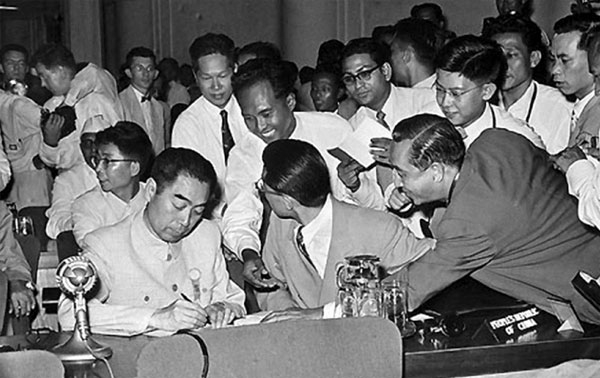
Then-premier and foreign minister Zhou Enlai on the sidelines of the Asian-African Conference, also known as the Bandung Conference, Bandung, Indonesia, in April 1955. /Xinhua
In the new era, China-Africa friendship has not only become more stable, but incorporated new elements. In March 2013, Xi Jinping chose Africa to be the destination of his first overseas visit as president of China.
In the past 30 years, Africa has also been the destination of the first overseas visit of the Chinese foreign minister every year. This unique arrangement is found nowhere else in the world. It speaks volumes about the special status of China-African friendship handed down from generation to generation as well as the fact that the development of China-Africa friendship and cooperation remains China's consistent policy and unswerving strategic choice.
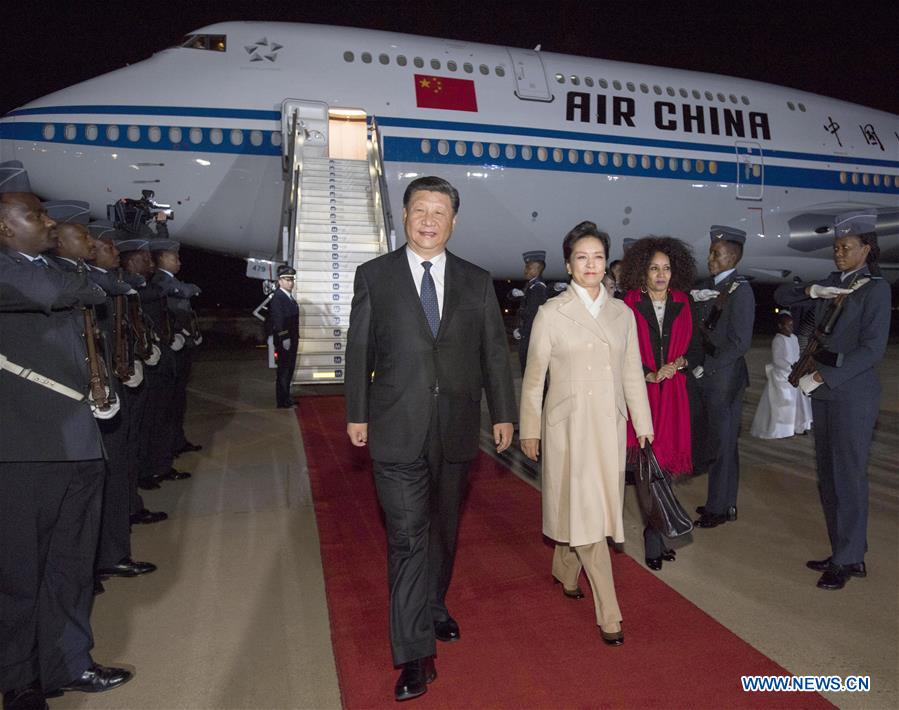
Chinese President Xi Jinping and his wife Peng Liyuan arrive in Pretoria for a state visit to South Africa, July 23, 2018. /Xinhua
China is the largest developing country in the world, and the vast majority of African countries are also in urgent need of development. Therefore, it is all the more important and practical for China and Africa to strengthen cooperation on the basis of consolidated traditional friendship.
According to China's Ministry of Commerce, bilateral trade between China and Africa reached 208.7 billion U.S. dollars in 2019, an increase of more than 20 times over the year 2000. China remains Africa's largest trading partner for 11 consecutive years.
At present, the stock of Chinese investment in Africa has reached 110 billion U.S. dollars, and more than 3,700Chinese enterprises have invested and set up businesses in Africa, injecting a strong impetus to Africa's economic development.
China also works closely with Africa to strengthen the infrastructureon the continent. For example, ithas built more than 6,000 kilometers of railways and roads as well as nearly 20 ports and large power stations in Africa. Such infrastructure has boosted Africa's industrialization and enhanced its self-reliance capacity.
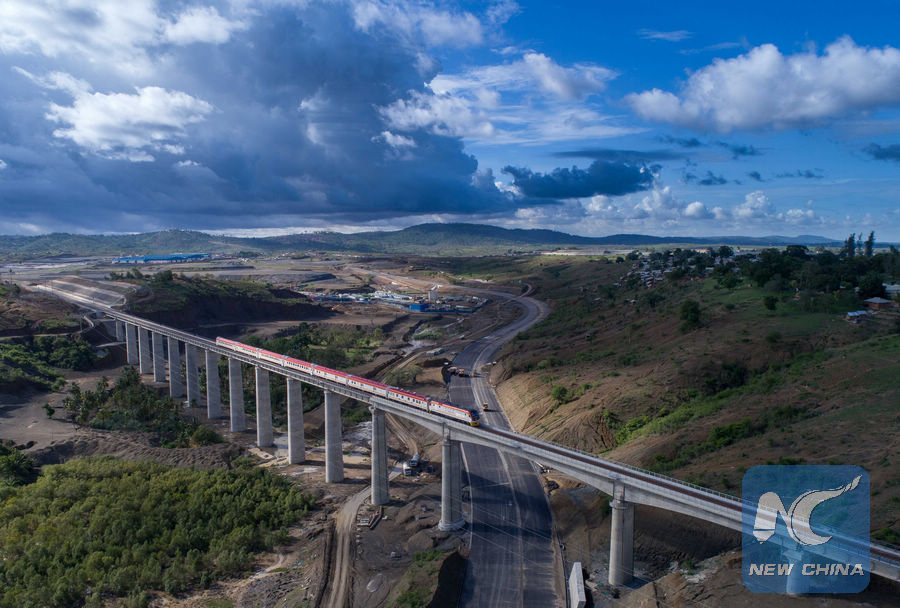
The Mazeras Bridge on the Mombasa-Nairobi standard gauge railway in Kenya, May 12, 2017. /Xinhua
Therefore, it can be said that the China-Africa friendship sets a fine example of building a community with a shared future for mankind. As early as 1963, China began to send medical teams to many African countries. So far, China has dispatched a total of 21thousandmedical teams that benefited 260 million Africans.
During the Ebola outbreak in West Africa in 2014, China responded immediately by sending epidemiologists to Guinea, Liberia and Sierra Leone to assist in the fight against the epidemic.The China-African solidarity and cooperation in the face of the current COVID-19 outbreakis a continuance of this tradition.
In March 2013, in a speech in Tanzania, President Xi Jinping said, "The river runs deep because of its source."It is precisely because of their time-tested friendship and cooperation in the new era that the development of China-Africa friendship will be steady and sustained.
(If you want to contribute and have specific expertise, please contact us at [email protected].)
 简体中文
简体中文

